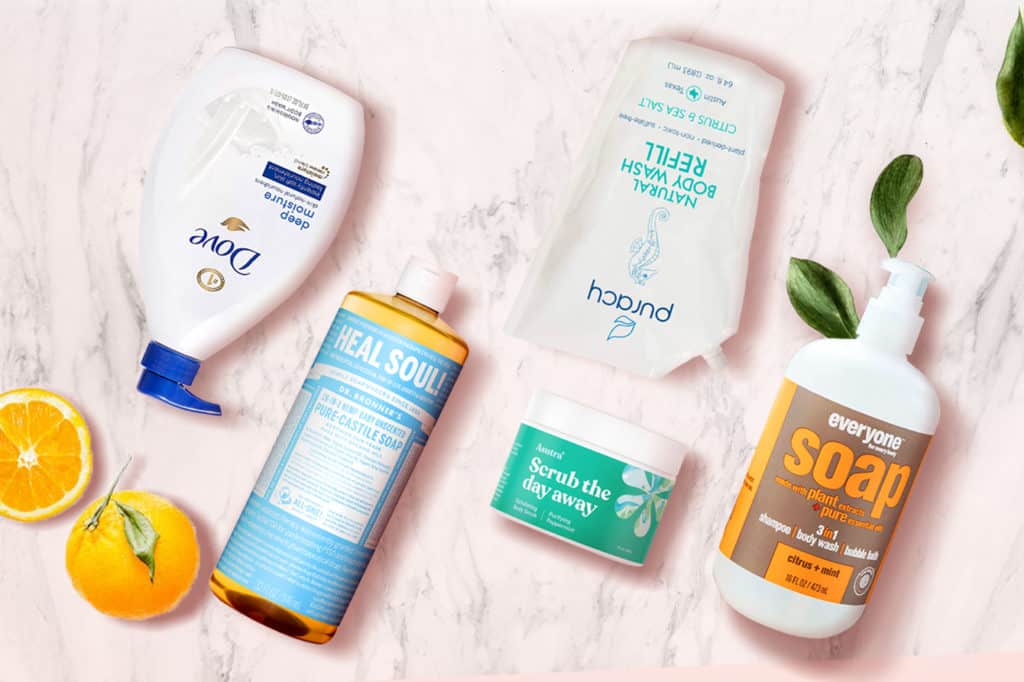After 32 hours of research evaluating 107 products, we picked Dr. Bronner’s Pure-Castile Liquid Soap as our top choice.
Maybe you’ve never given your body wash much thought before (you probably also grab any conditioner, shampoo, and lotion and call it a day, if that’s the case).
The truth is:
Not all soaps and body washes are designed to remove dirt and bacteria. And finding the best body wash for women, or more specifically, for you, could drastically improve your skin.
For example, if you’ve noticed bacne developing or your skin is really dry, it could just be your body wash. In that case, you may just need a moisturizing body wash (that doesn’t strip your skin of all the oils it needs).
As the folks at Everyday Health demonstrate, there’s more to choosing the best body wash for women. You might just want to get some advice from them as you shop.
Here’s the best part:
We researched for you and created a list of the best body wash for women options out there. We promise our list has something you’ll love.
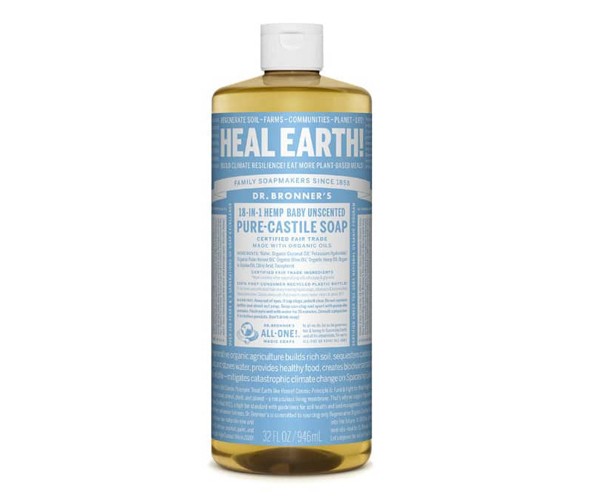
Dr. Bronner’s Pure-Castile Liquid Soap
- Extremely moisturizing and doesn’t strip your skin
- Safe and sensitive ingredients your skin will love
- It can be used for anything -not just for washing your body
Pros
Cons
An all-purpose, completely organic soap that moisturizes, softens, and repairs skin. Perfect for all skin types.
Doesn’t have much of a fragrance or lather, which some may not like.
Product Ratings
Skin Type
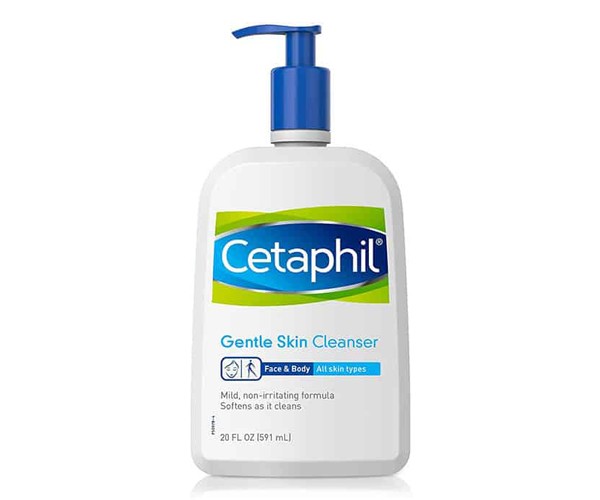
Cetaphil Gentle Skin Cleanser Hydrating Face Wash & Body Wash
- A gentle and fragrance-free body wash
- Cleanses the skin without stripping moisture
- Can be used on the face, too
Pros
Cons
A super-gentle face and body cleanser that leaves you feeling soft and clean, without irritation (even for people with dermatitis and eczema).
It may not be “gutsy” enough for very acne-prone or oily skin, but you can follow-up with a toner.
Product Ratings
Skin Type
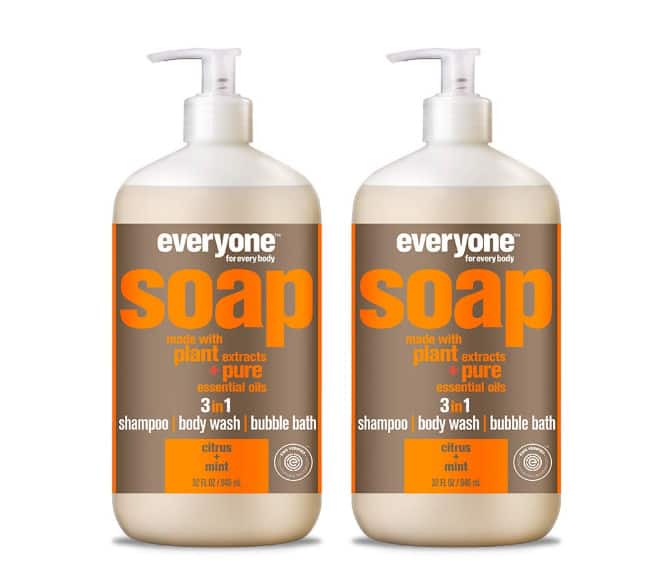
Everyone 3-In-1 Soap
- Lasts forever – just two pumps washes you from head to toe
- Affordable price for quality, organic ingredients
- Slight scent that doesn’t linger
Pros
Cons
Formulated to be used as a shower gel, shampoo, bubble bath, or a shave gel. Pure essential oils give these soaps their natural scent. Paraben-free, cruelty-free, gluten-free, GMO-free, synthetic color & dye free, and synthetic fragrance-free.
This body wash doesn’t lather much.
Product Ratings
Skin Type
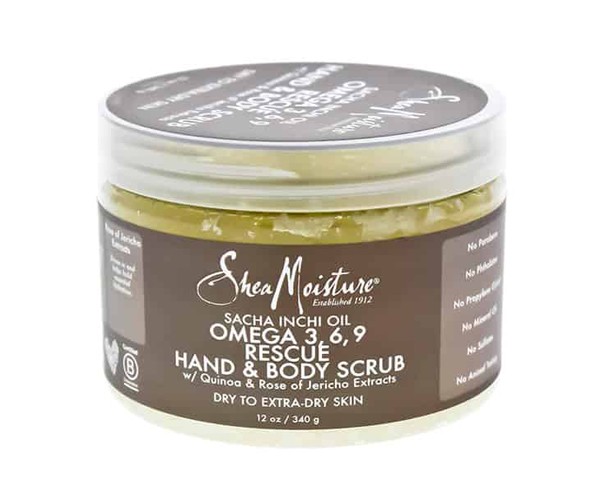
Shea Moisture Sacha Inchi Hand and Body Scrub
- Sugar gently removes dead skin and reveals new, glowing skin
- Oils, butters, and natural extract hydrate and nourish dry skin
- Great value for money
Pros
Cons
A sugar scrub packed with oils and butters that hydrate very dry skin and leaves you soft and glowing.
The jar-style packaging may be a little messy, just be sure to rinse excess away so it doesn’t build up in the shower.
Product Ratings
Skin Type
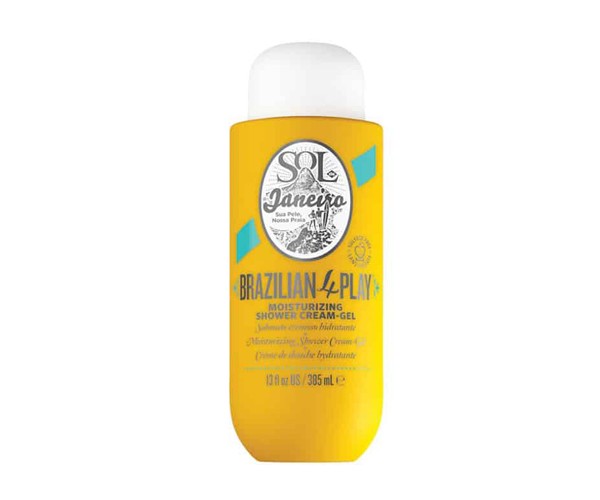
Sol de Janeiro
- A sweet, sensual, dessert-like fragrance
- Creamy lather to hydrate skin
- Free from parabens and phthalates
Pros
Cons
A luxe body wash scented with an iconically-delicious fragrance and infused with butters, oils, and antioxidants.
Expensive for how much you get, but the delicious smell makes it all worth it.
Product Ratings
Skin Type
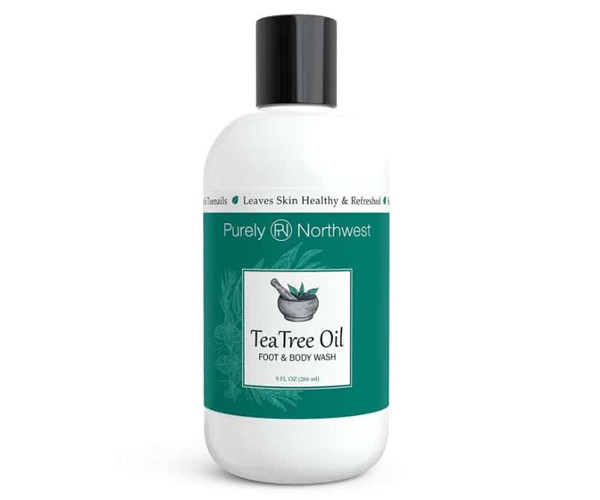
Purely Northwest Tea Tree Oil Body Wash
- Effective at healing fungal and bacterial skin conditions
- Works miracles on cystic acne
- Completely removes all dirt and oil; thoroughly preventing breakouts
Pros
Cons
Cruelty-free and formulated without parabens, synthetic fragrances, or dyes. Made in the USA.
It doesn’t work for everyone, and there are sulfates in the mix.
Product Ratings
Skin Type
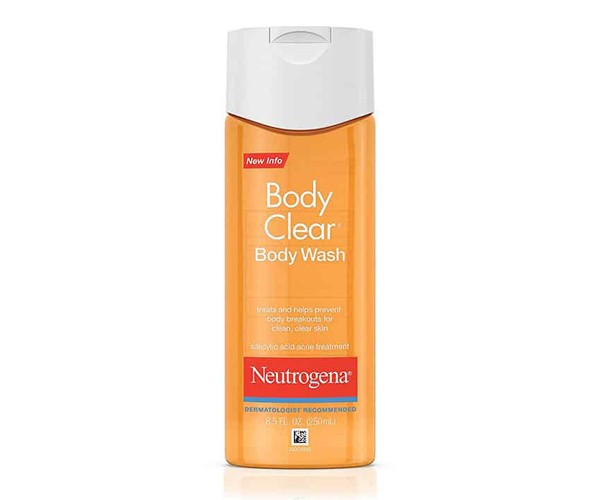
Neutrogena Body Clear Acne Body Wash
- Salicylic acid helps to clear pores and reduce breakouts
- Leaves skin feeling clean without stripping important moisture
- Affordable
Pros
Cons
An affordable shower gel designed to help clear breakouts and acne on the body without causing that tight, dry feeling.
It contains fragrance and dyes which may be irritating to sensitive skin.
Product Ratings
Skin Type
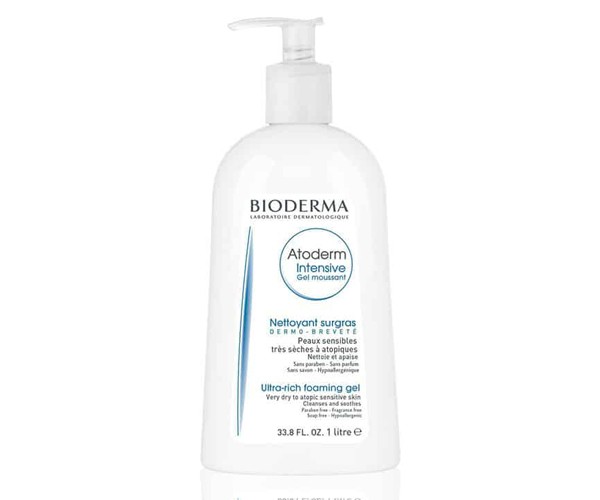
Bioderma Intensive Foaming Gel
- A soap-free, fragrance-free gel body wash for very dry skin
- Cleanses while restoring and protecting moisture
- Great value (33 ounces will last you a long time)
Pros
Cons
A fragrance-free body wash that softens and hydrates the skin as it cleanses. It can even be used on the face (kill two birds with one stone!).
Possibly too mild for acne-prone skin, but it could be followed by a tea tree toner.
Product Ratings
Skin Type
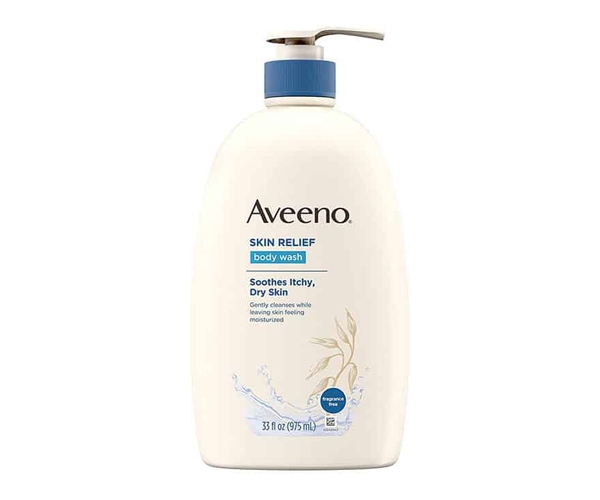
Aveeno Daily Moisturizing Body Wash
- Unscented for sensitive skin (and noses)
- Oats and glycerin soothe and hydrated dry, irritated skin
- Great value for money
Pros
Cons
A fragrance-free body wash infused with oats to soothe angry skin and cleanse without stripping moisture.
Contains sodium laureth sulfate, which may be irritating to some (but not a problem for others)
Product Ratings
Skin Type
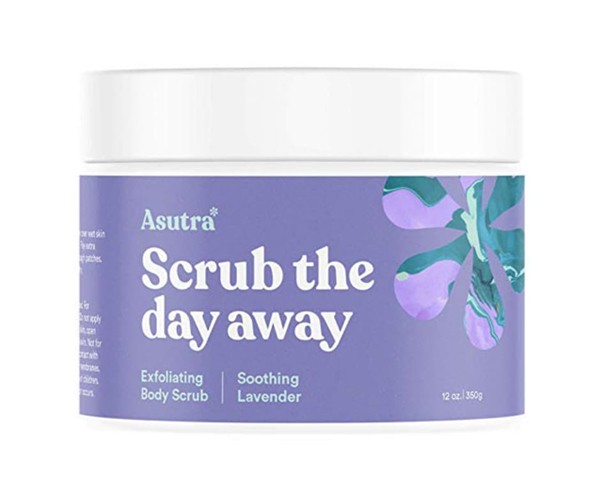
Asutra Gentle 100% Pure Dead Sea Salt Exfoliating Body Scrub
- Eliminates rough, itchy skin, and instead leaves it feeling soft, smooth, and silky
- You don’t need to use a moisturizer after cleansing
- Heals psoriasis, eczema, and leaves no skin irritation
Pros
Cons
A best-selling scrub that deeply exfoliates and removes impurities. Made with 100% natural exfoliants and oils.
The salt and oil can sometimes separate, however it comes with a wood spoon so you can mix it before using.
Product Ratings
Skin Type
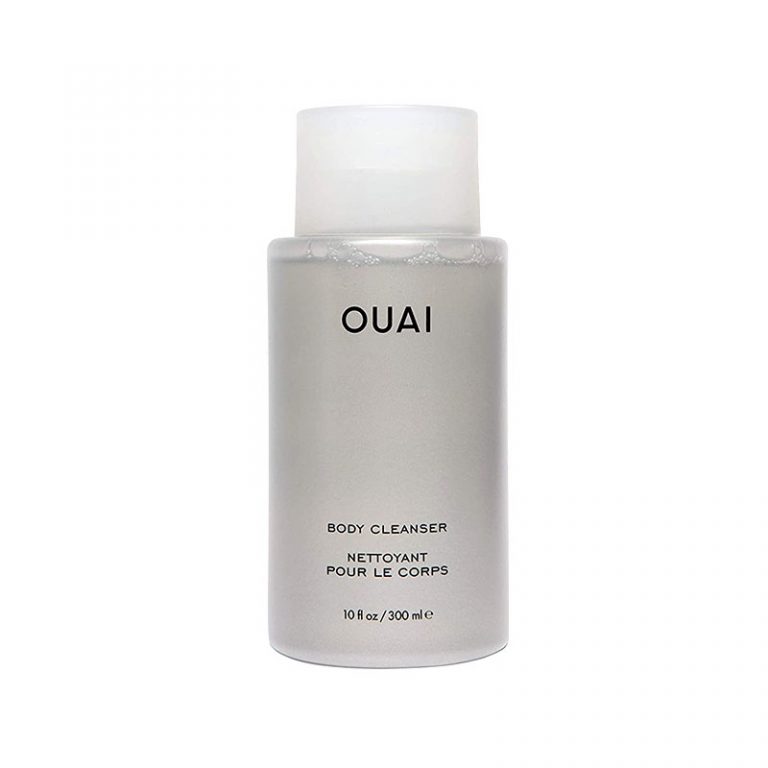
OUAI Body Cleanser
- Beautiful floral and citrus scent
- Hydrates the skin with nourishing oils
- No parabens or sulfates
Pros
Cons
A nourishing gel body wash with hydrating oils and citrusy-floral scent.
It’s quite expensive, but worth it for the amazing fragrance.
Product Ratings
Skin Type
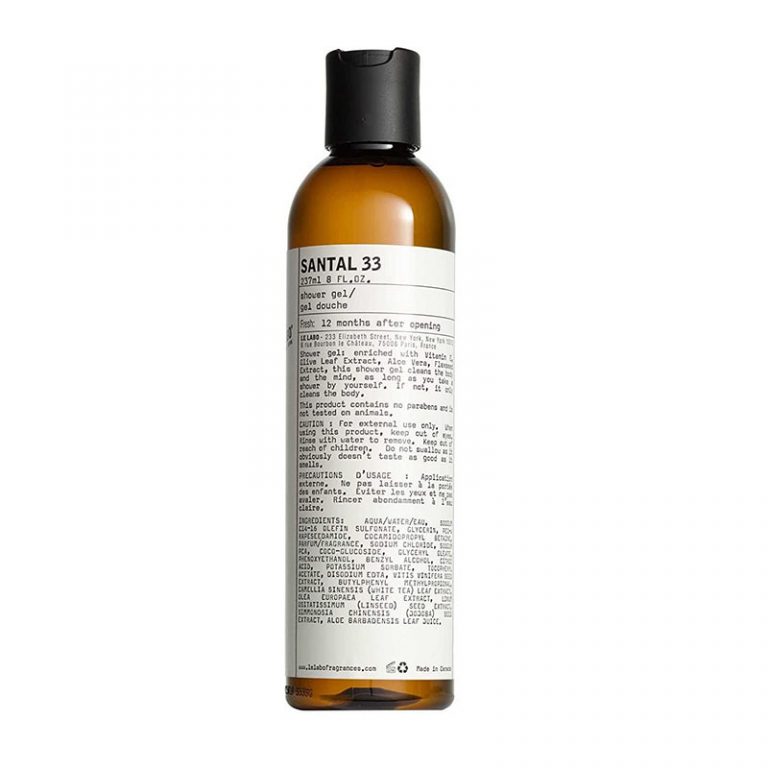
Le Labo Santal 33 Shower Gel
- Vegan and cruelty-free formula
- Contains nourishing oils and plant extracts
- Amazing unisex fragrance
Pros
Cons
A high-end vegan body wash with skin-loving natural extracts and the iconic Santal 33 fragrance.
The price is eye-watering for a body wash, but think of it as a fragrance in itself.
Product Ratings
Skin Type
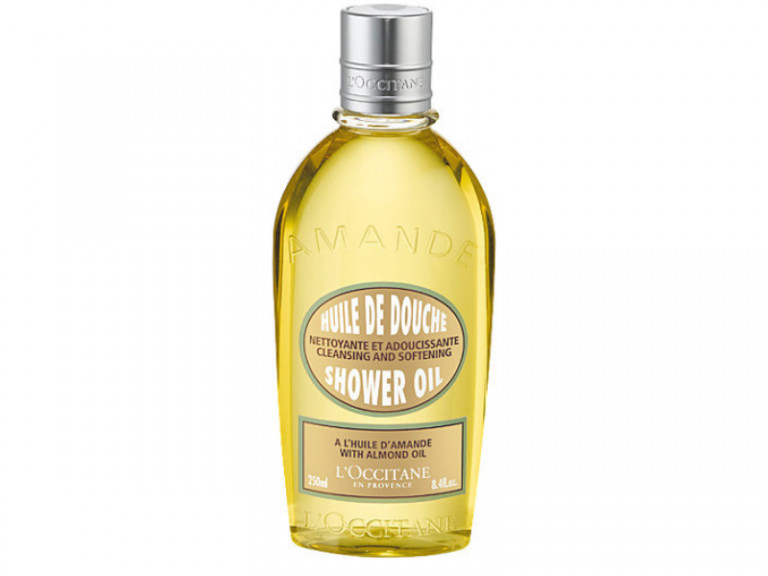
L’Occitane Cleansing & Softening Almond Shower Oil
- Heavenly almond smell
- Leaves your skin extremely soft and hydrated
- Doubles as both a body wash and shaving oil
Pros
Cons
This shower oil actually works into a light foam to cleanse as well as moisturize. It also works as shaving oil and there’s a refill which is good for the environment.
Besides the price, it doesn’t lather as much as some users might want.
Product Ratings
Skin Type
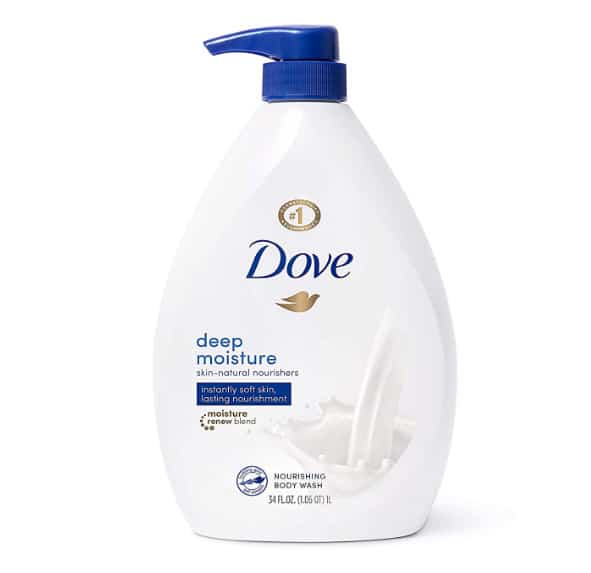
Dove Deep Moisture Body Wash
- Heals dry, flaky skin
- Amazing scent that isn’t overwhelming
- A lot of product for the price
Pros
Cons
An inexpensive body wash that smells incredible while soothing and healing dry skin.
It contains added fragrance and a few not-so-pleasant chemicals.
Product Ratings
Skin Type
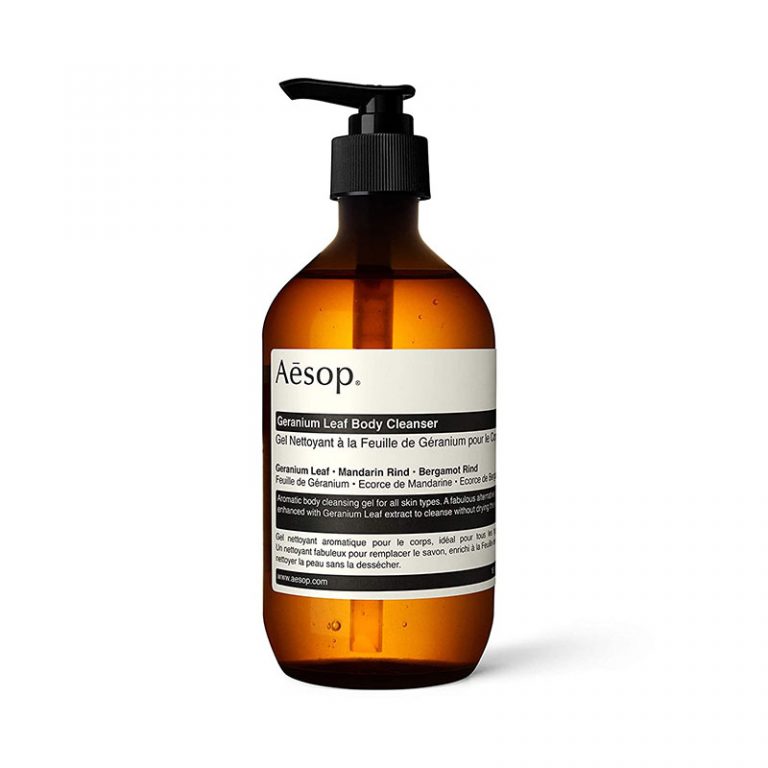
Aesop Geranium Leaf Body Cleanser
- A clean, crisp, citrusy fragrance perfect for summer
- Leaves you feeling clean and fresh
- Have the iconic Aesop label in your shower
Pros
Cons
A simple body wash with a fresh, citrusy fragrance ideal for normal skin types.
Citrus oils may irritate sensitive skin, but are fine for most.
Product Ratings
Skin Type
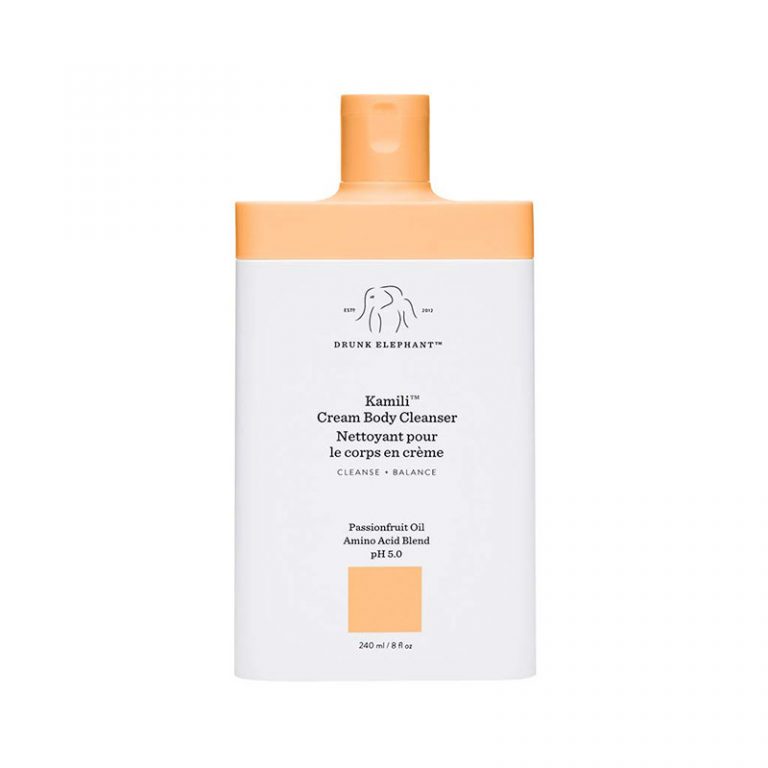
Drunk Elephant Kamili Cream Body Cleanser
- A creamy, hydrating formula without fragrances or sulfates
- Packed with fat-rich oils that soothe dry skin and leave a protective layer
- Fresh, light almond scent
Pros
Cons
A creamy, almond-scented body wash with hydrating ingredients designed to soothe and soften dry, sensitive skin.
The bottle is rather small (8oz) but a little goes a long way.
Product Ratings
Skin Type
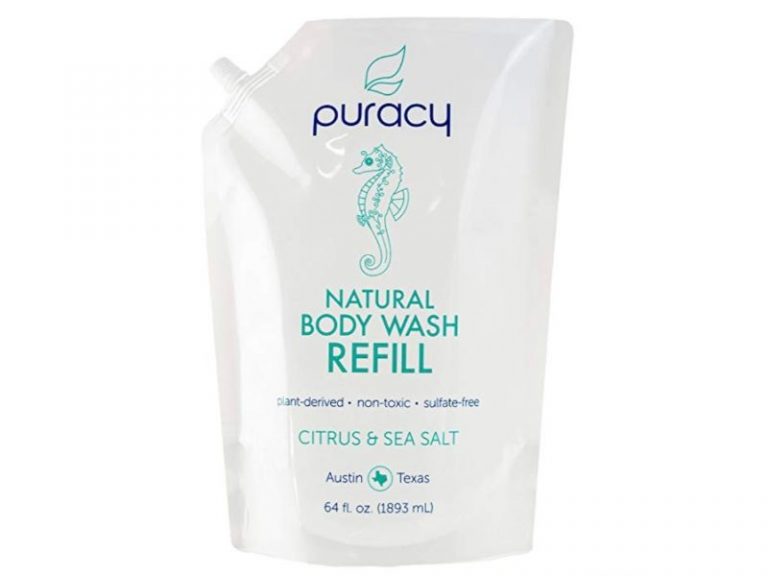
Puracy Natural Body Wash Refill, Sulfate-Free Shower Gel Daily Cleanser, Citrus & Sea Salt, 64 Ounce
- Award-winning plant-powered personal care
- Plant-derived, hypoallergenic, gluten-free, biodegradable, and cruelty-free
- Excellent choice for anyone with sensitive skin
Pros
Cons
Puracy Natural Body Wash features a balanced blend of luxurious ingredients, including Pink Himalayan Sea Salt, which naturally exfoliates, hydrates, and balances skin with cleansers, emollients, and essential oils. Great for even the most sensitive skin types, this body wash is versatile and gentle enough to wash all body parts, including your face.
Although very few reviewers had anything negative to say about this body wash, some did report it left skin feeling dry and itchy. Do keep in mind, if you’re not 100% satisfied this company offers a full money back guarantee, so still worth a try in our opinion.
Product Ratings
Skin Type
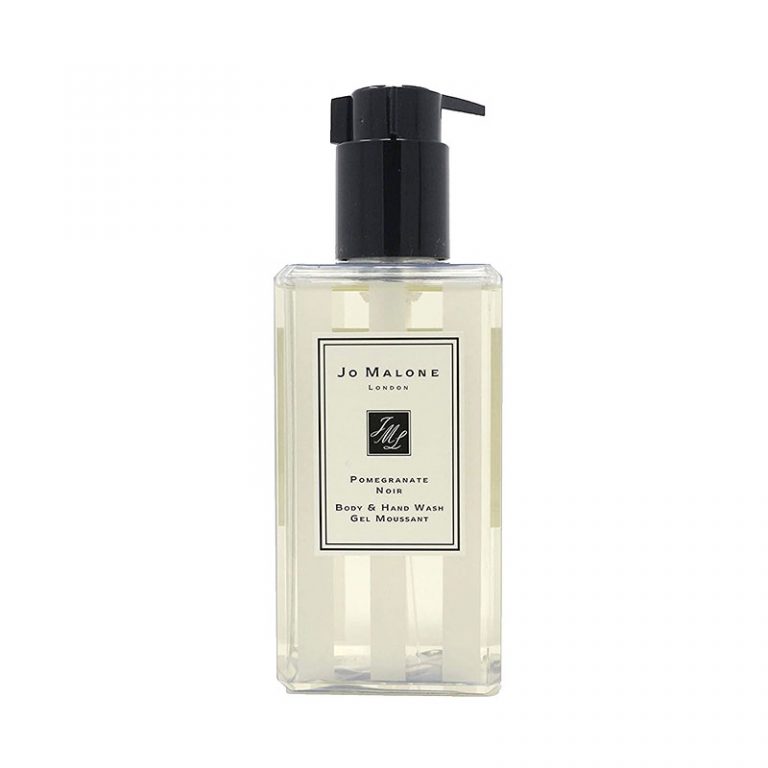
Jo Malone London Body and Hand Wash Gel for All Skin Types
- The delicious fragrance lasts all-day
- Doubles as a hand and body wash
- A perfect gift for lovers of scent who already have multiple perfumes
Pros
Cons
A luxury hand and body wash that’s all about the fragrance, as you’d expect from one of the biggest names in the scent industry.
The price is a clear sore point, but it’s an investment item and ideal for gifting.
Product Ratings
Skin Type
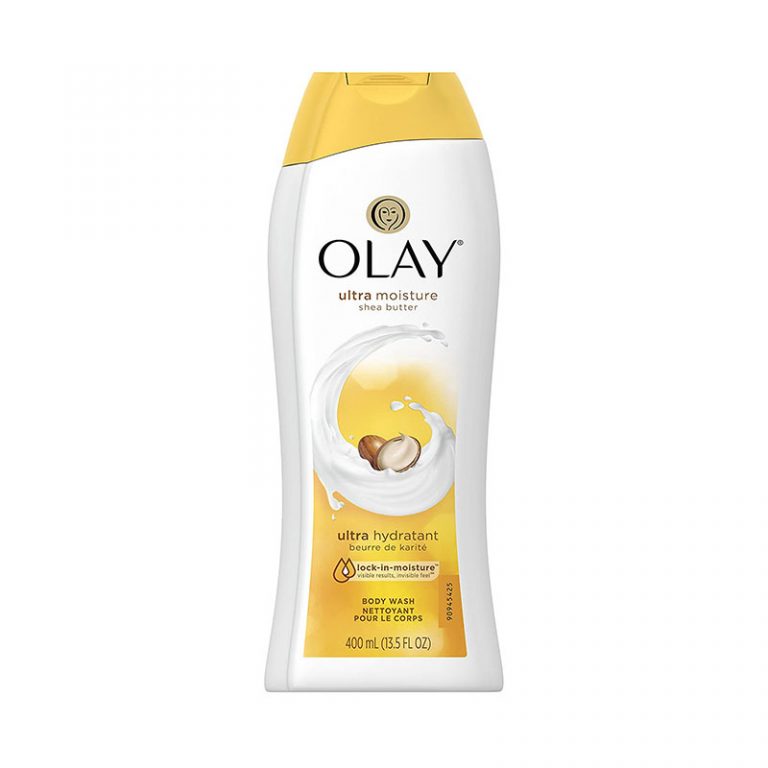
Olay Ultra Moisture Shea Butter Body Wash
- Deeply hydrates very dry, coarse skin while cleansing
- A fresh, pleasant scent
- Great value
Pros
Cons
An ultra-rich body wash for very dry skin, with shea butter for hydration.
Contains petrolatum which may irritate sensitive skin (but fine for most)
Product Ratings
Skin Type
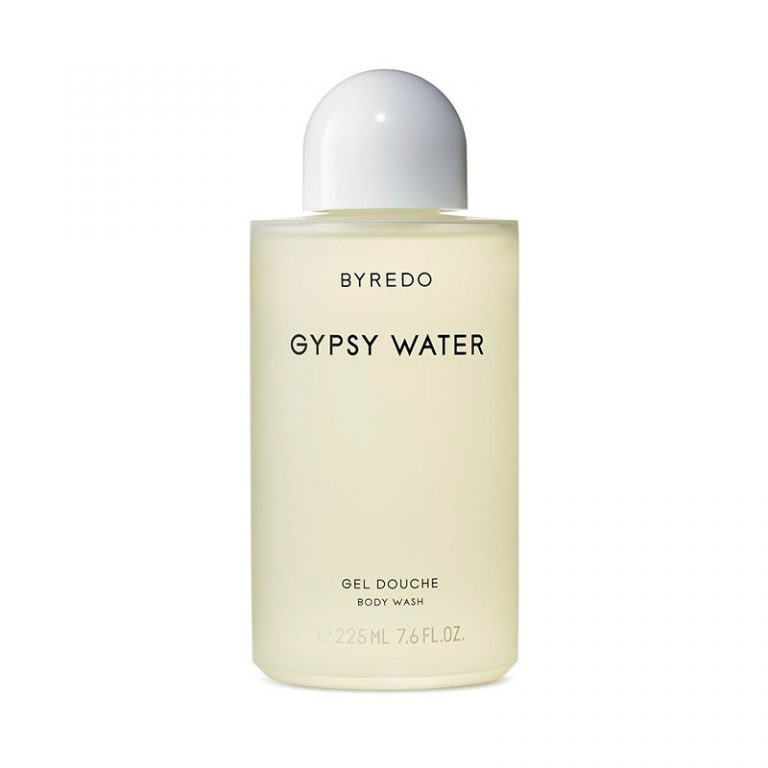
Byredo Gypsy Water Body Wash
- The body wash version of the popular By Redo fragrance
- Free from parabens and phthalates
- Doubles as a fragrance as it lasts long after your shower
Pros
Cons
The same irresistible scent as the fragrance by the same name, the body wash gently cleanses while leaving you smelling amazing.
The price will set you back a fair chunk of cash.
Product Ratings
Skin Type
Body Wash Tips and Guide For Women
Why not stick with bar soap?
You can, by all means, use bar soap to cleanse your body if that’s what makes you comfortable. These tips aren’t going to convince you to make the switch to body wash. We’re far more concerned with helping you make the best choices if shower gel is already your thing – or you were already planning to change your showering habits.
That said, there are some benefits to a body wash that you’re not going to get from a bar of soap. For a start, you don’t need to worry as much about the storage of body washes, as the packaging is created to be moisture impermeable and it can stand just about anywhere in the shower – whether you use a shelf, a caddy, or just the ground.
Body washes are also easier to lather, and there are plenty of women that truly enjoy that sensation. Additionally, if you’re into the fragrance side of things, shower gels tend to offer more variety.
Bar soaps tend to have a higher pH level than body washes, which can make them dry, but it depends on which side of the argument you are on as to how much you believe that. The levels are usually negligible, which puts it right back to personal preference.
However, that cake of soap sitting a puddle of water might possibly breed bacteria, making the cleaning aspect somewhat questionable. If you can keep the soap dish drained, however, you should be fine.
As for the big question… bar soaps won’t get you any cleaner than body wash. It’s really all about how you feel about using either product.
There are two types of body wash
You may have noticed that we’ve used the words body wash and shower gel interchangeably. As far as they’re colloquially used, people will totally know what you mean when you substitute them for each other. But there are some differences, however slight they may be.
Shower gels derive their name from their slightly more gel-like consistency that they carry. Typically speaking, these products will contain water (as just about every cleansing product does), detergent (that’s the cleansing part of the formula), and surfactants of some sort (these are the lathering agents). Many also have added colors or fragrances and some form of preservative to keep it shelf-stable.
On the other hand, body washes tend to be more watery and less gel-like. Though that often has to do with the amount of water in the formula, it may also have to do with added oils that are used to moisturize skin. Some make use of petroleum jelly rather than oils. Of course, body washes also have detergents and surfactants, and may also have fragrances and dyes added to them.
While you should expect a good lather from both products, you may find that shower gels often have a stronger concentration of ingredients, which may be irritating; they may also have strong scents. Body washes are usually better for people that experience more sensitive skin. That said, they’re sometimes more difficult to wash off as the moisturizing agents are meant to cling to the skin.
For the most part, it’s fair to continue to use the words interchangeably, as the ingredients and use of both are so similar that it’s actually not worth making the distinction.
How is a body wash different from shampoo or facial cleansers?
It should pretty much go without saying that shampoo is made for your hair, facial cleansers are made for your face, and body washes are made for your body. Each area requires a slightly different level of cleansers and moisturizers, as each has different characteristics.
Shampoo tends to have the highest concentration of detergents and surfactants of the three. These are usually followed by shower gels and body washes (in that order if you’re a purist), and then facial washes. Body washes tend to have extra proteins that your face has a difficult time absorbing.
However, you can substitute one for the other if you’re absolutely desperate (like you’re already in the shower and getting out sounds a little like torture). But, unless you’ve just worked up a crazy sweat or participated in mud wrestling, you may be better off just rinsing off with water and waiting until you have the right product on hand.
Ingredients you want in a body wash
The ingredients you want in a body wash are a fairly simple list. Indeed, the smaller the list, the better the product is… usually.
The first on the list should be water; proportionally, it’s the largest in a good product. It’s the solvent that carries all the other ingredients.
After that, you will hopefully find some sort of detergent, which is the actual soap part of the mix. Coconut is one of the most popular cleansers, but there are other plant derivatives that can get the job done. Then there are emulsifiers to thicken the formula and preservatives that keep your wash stable on the shelf (meaning it doesn’t become contaminated over time). Surfactants are used to make the formula foamy. And you’ll often find some sort of fragrance, whether it’s natural or synthetic.
The list of what could go into a desirable body wash could be just about any essential oil or plant extract, and that list is long. It’s actually far more useful to consider the ingredients that have caused some controversy as they are far easier to recognize.
Ingredients you don’t want in a body wash
When it comes to ingredients you don’t want in a body wash or shower gel, you should know that many of them are in many different personal hygiene products. There are many reasons for this, largely the fact that the FDA hasn’t ruled them as unsafe – or they have restricted the quantities to levels determined to be safe.
Additionally, some ingredients (such as parabens) have black spots against their name, though the research isn’t conclusive in one direction or another.
If you’re very concerned about the products and ingredients you put on your body, then steer clear of the body washes that include anything from this list. If you’re not sold on the potential harm, the FDA is currently on your side, and you can make your own decisions accordingly.
Parabens – These are the most recognizable at the moment since they have been given plenty of media attention. They’re also easy to spot as they have the word paraben at the end of them. These ingredients are used as preservatives in a lot of our grooming products – and some do occur naturally. The controversy arose when researchers found parabens in cancerous tissues, however this test (which linked parabens with cancer) didn’t test non-cancerous tissues for paraben levels, and subsequent research hasn’t been able to prove a conclusive link. There is also a suspected link between parabens and hormone issues, but the FDA believes it is safe, so the decision is up to you.
Sulfates – When it comes to shower gels, this may actually be the bigger issue at hand. These are surfactants and emulsifiers and also have some cleansing properties. You may see them abbreviated to SLS or SLES (short for sodium lauryl sufate and sodium laureth sulfate). But, sulfates are a major tissue irritant. The FDA regulates the amount of these ingredients in our products, but there are some studies out there that suggest that they’re more than an irritant; they break down the skin’s moisture barrier, and they may damage hair follicles, causing a loss in the long run. It’s important to note that, when combined with other chemicals, SLS becomes a “nitrosamine,” a potent class of carcinogen.
Dioxane – This is a synthetic derivative of coconut and makes it confusing, as there are many shower gels with natural coconut derivatives. It’s believed to be toxic to your brain, kidneys, and liver and is currently listed as a “probable” carcinogen. This particular ingredient is a little more difficult to locate on the ingredient list. You should look for indications of ethoxylation, which include: “myreth,” “oleth,” “laureth,” “ceteareth,” any other “eth,” “PEG,” “polyethylene,” “polyethylene glycol,” “polyoxyethylene,” or “oxynol.”
Diethanolamine or DEA – When combined with nitrite preservatives, DEA creates nitrosodiethanolamine (NDEA), a known carcinogen. It affects the liver, kidneys, and may affect developing fetuses. You’ll find this ingredient mostly in synthetic fragrances (which you may want to avoid in any case). While individual products will not combine DEA with nitrites, the issue develops when multiple products are used in short succession (as is likely during showering routines).
Propylene glycol – You’ll also find this ingredient in antifreeze, engine coolants, and paints, which should give you cause to consider whether it should be touching your skin. You’d be right. There have been studies that suggest it causes liver and kidney abnormalities as well as causing minor to troubling skin irritations. Just look for these words on the ingredient list to see if your body wash contains this ingredient.
Triclosan – While not as big an issue as some of the other ingredients listed here, this antibacterial may be one of the reasons we’re increasingly resistant to antibiotics. If that’s a concern of yours, you’d better start looking at all the soaps in your home.
And, while they may not cause you any other issue, you may want to limit the number of artificial dyes and fragrances in your personal care routine. While they may not cause you, personally, any irritation, they aren’t necessary, and based on the continued testing, all products are undergoing, may one day be deemed unsafe.
Choosing the right body wash for your skin type
Okay, not that you know what you want to avoid, it’s time to start thinking about the best product for you. As much as the aroma or the lathering may be something you desire in a body wash, it’s best to consider the type of skin you have when choosing your shower gel.
Dry skin – Creamy products are usually what you’re after as they tend to have more moisturizing ingredients, such as milk proteins or petroleum jelly in the mix. Those with shea butter will usually be a little more expensive, but they can be totally worth it. It’s worth considering the use of a wash cloth or a shower puff, so you don’t apply too much product to your skin.
Sensitive skin – If you’re battling itchy, flaky, dry skin, you need to steer clear of harsh products, including those with alcohol (common in the artificial fragrance) and dyes. Ideally, you want something with sunflower seed oil or added vitamin E. Also, look for products with glycerin or oatmeal. And, don’t forget that hot water is also quite drying; you may need to make those showers a little shorter.
Acne-prone skin – You will need to exfoliate, which may be better accomplished with a puff or a washcloth than with beads. But, you could also consider anti-acne ingredients like salicylic or glycolic acid. If you want something that’s a little more natural, look for tea tree products that reduce inflammation, and act as an astringent.
Anti-aging concerns – Most people think of facial cleansers when they hear the words anti-aging, but you can certainly help the skin cells on your body too. You’re looking for vitamin B or niacinamide, plus a fair amount of salicylic and lactic acids to keep your body’s skin looking and feeling young.
Post-workout showers – Showering more than once a day isn’t exactly recommended, and you may be saving your showers until after your workout. But, if you’re getting more than one a day, you probably should look for sodium lauroyl sarcosinate, and decyl glucoside in your body wash. They’re great for washing away salts and oils without being overly drying.
What about using men’s products?
If you’re standing in a guy’s shower with only men’s products around, there’s probably a good reason for it, and you should certainly use whatever soap or body wash is available. But, we wouldn’t recommend continually using shower gels designed for men. And, that’s not just because they’re typically enhanced with masculine aromas.
Men’s skin is (usually) thicker than women’s skin. Believe it or not, women have a thinner collagen layer (it’s as much as 25 percent smaller). Body washes and soaps designed for men take this into account. And, while you’ll find that many of the ingredients overlap – or are, in some cases, exactly the same, the quantities may be different. They’re likely to be a little higher on the detergent side and have a little less on the moisturizing side. Of course, there are plenty of gender-neutral products – and, hey, if you find a men’s shower gel does it for your skin, you may as well use it.
How much body wash do you really need to use?
Yes, it can be quite fun to have a shower full of rich lather and bubbles – and if that’s your idea of a party, you may as well indulge in it once in awhile. But, you don’t need a lot of product to cleanse your body. If you’re using a puff or a sponge, you’ll need a quarter-sized dollop… max. Any more and you may find that your shower gel dries your skin more than it cleanses it.
If you prefer to use your hands to lather and clean, you’ll need a little more than that, but not double. A silver dollar-sized dab is more than enough. And, there’s even some schools of thought that you should mostly rinse your body with water, using cleansing agents only on dirty or sweaty areas. Whether you can handle that or not, the good news is that a single body of body wash should last you quite some time.
Do you need a poof or a washcloth?
As suggested above (and, in fact, throughout these tips), shower puffs, sponges, and wash cloths can make your shower gel work harder for you. These elements increase the lather while using less product. They’re also fantastic exfoliators, and you want that from time to time – if not every day.
But, we want to warn you about these items. If you don’t rinse them completely and allow them to dry, then they will become a breeding ground for all sorts of bacteria. If you’re the only one using your shower, you hang your sponge to try, and the bathroom is well-ventilated, you shouldn’t experience too many issues. But, if your poof is sitting in a puddle of water in the family bathroom, you may want to rethink your cleansing strategy.
It’s one plus to using the old fashioned washcloth that can easily be washed and dried, though many women opt to skip the enhancer altogether. Indeed, if you sidestep the lather, you’re less likely to dry out your skin – and those that frequently battle dry skin should consider this for most of their showers.
If you use a hydrating wash, can you skip the body lotion?
No. Please don’t. You really don’t want to. You see, you put the body wash on and then you rinse it off almost straight away; it doesn’t have much of a chance to work. What it does is limit the drying aspect of your cleansing routine. That’s all that it can do. In fact, you should apply a body lotion every time you get out of the shower to maintain healthy skin and to stave off the appearance of age as long as you can.
